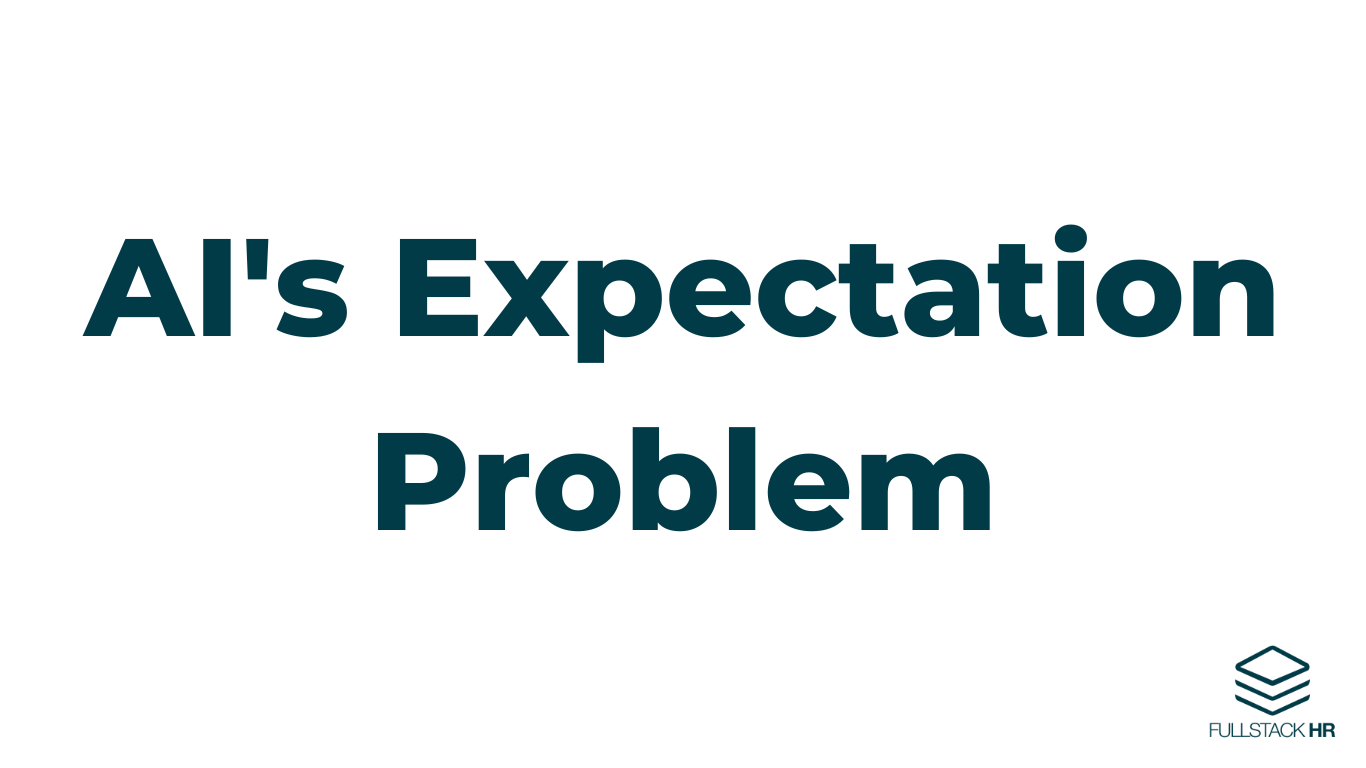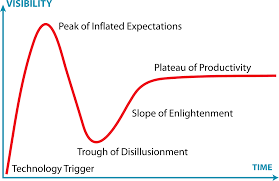AI's Expectation Problem
Bridging the divide between hype and implementation
Welcome to FullStack HR, and an extra welcome to the 43 people who have signed up since last week. If you haven’t yet subscribed, join the 7300+ smart, curious HR folks by subscribing here:
Happy Friday!
It's ambivalent to be back.
On the one hand, taking a proper Swedish vacation and spending time with the family is marvelous. On the other hand, being a restless soul, it's good to be working again.
For the first time in forever, I haven't read a single news story about AI, even actively avoiding it, and it was insanely refreshing.
It also gave me a bit of perspective on the AI craze that's been going on in my life since January 2023.
Now that I'm back, I've been trying to catch up on all the twists and turns that have been happening within AI. As I reflect on recent developments, I can't help but feel that we either have just passed or are on the top of the hype cycle when it comes to AI. Consequently, I believe it's downhill from here, at least for a while. Interestingly, I recognize that I'm partly responsible for this situation.
As someone who is passionate and can see the benefits of AI, I, along with others like me, have talked extensively about the potential we see. While this enthusiasm isn't inherently wrong, history reminds us that change often takes longer than we expect. In this context, Amara's law still holds true: "We overestimate technology in the short-term but underestimate it in the long-term".
Despite the potential for short-term disappointment, I still believe that AI will have a huge impact in the long-term; there's no doubt about it in my mind.
The real question is: when will we see the tangible benefits of AI in organizations?
A recent study by Upwork sheds some light on current expectations. According to their findings this summer, leaders have high hopes that generative AI will help boost productivity. An astonishing 96% (!) of C-suite leaders say they expect the use of AI tools to increase their company's overall productivity levels.
However, these lofty expectations may be setting us up for disappointment. In an economy driven by quarterly results and with almost everyone hoping for immediate productivity gains, the reality may fall short of these ambitious projections.
And yet, with these expectations, we know that roughly 43% of all organizations have implemented GenAI at work and that only 40% have trained their workforce on how to use GenAI.
This points to an interesting discrepancy where C-levels have high expectations and hopes for GenAI to increase productivity but are not providing their organizations with adequate support for the transition.
It's as if people are expected to magically learn GenAI overnight.
This gap between expectations and implementation further underscores the potential for disillusionment. I predict that as soon as a few C-level executives start voicing concerns about how "AI isn't really making a dent," the sentiment around AI will begin to shift.
Now, you might be wondering: am I suggesting we should abandon all plans around AI?
Not at all.
My intention is simply to prepare you for what I believe is coming.
This pattern isn't unprecedented - we saw a similar cycle in the early 2000s with the rise of internet companies. Hype and aspiration led to soaring valuations for IT companies, creating an unsustainable bubble. But the burst of that bubble didn't mean the internet was just a fad; it did, in fact, go on to revolutionize nearly every aspect of our lives. It just took a bit longer than initially expected.
So, the question isn't whether AI will have a similar or even greater impact than the IT boom - I'm convinced it will. The real question is: how long will the inevitable "trough of disillusionment" last?
My intuition suggests this period will be shorter than ever before.
Looking ahead, once we emerge from this phase, organizations will face a critical choice: will they have positioned themselves to be the next Amazon, or will they follow the path of Boo.com?
I believe organizations who think that AI is just a fad and that it was all hype and didn’t invest in upskilling their people will have a greater chance of ending up as boo.com, and those who continue to grind will more likely be Amazon.
Which one will you be?



